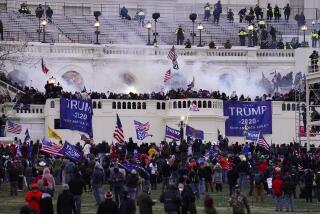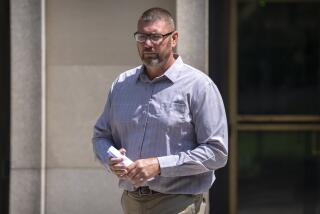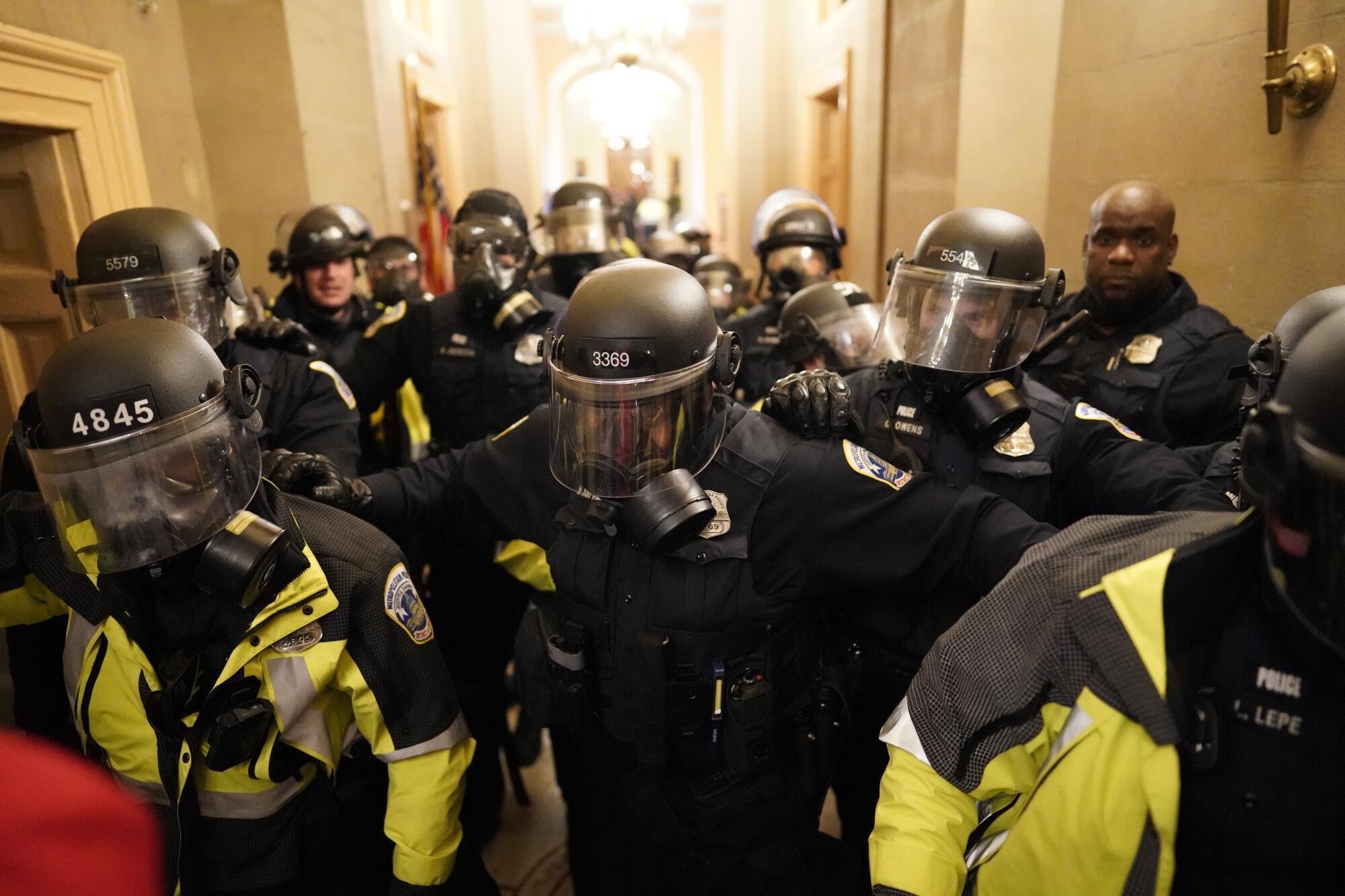
- Share via
WASHINGTON — For decades, many members of Congress believed the U.S. Capitol — with metal detectors, barriers and its own police force — to be one of the safest places in the country.
That comfort was shattered on the afternoon of Jan. 6, 2021, when a pro-Trump mob stormed the building in hopes of overturning Joe Biden’s electoral college victory.
In interviews, six members of Congress from California recount their stories from that deadly day: the surreal experience of realizing that their lives were at risk, that their workplace was being overrun and that the nation’s two-century record of peaceful transition of power had crumbled.
‘All I could think of is: Get Out. Run. As fast as you can. You don’t want to be trapped in here. Run, run, run. And all of a sudden, they closed the doors on us and they told us to get on the ground. There’s people trying to break in outside the doors.’
— Rep. Jimmy Gomez (D-Los Angeles)
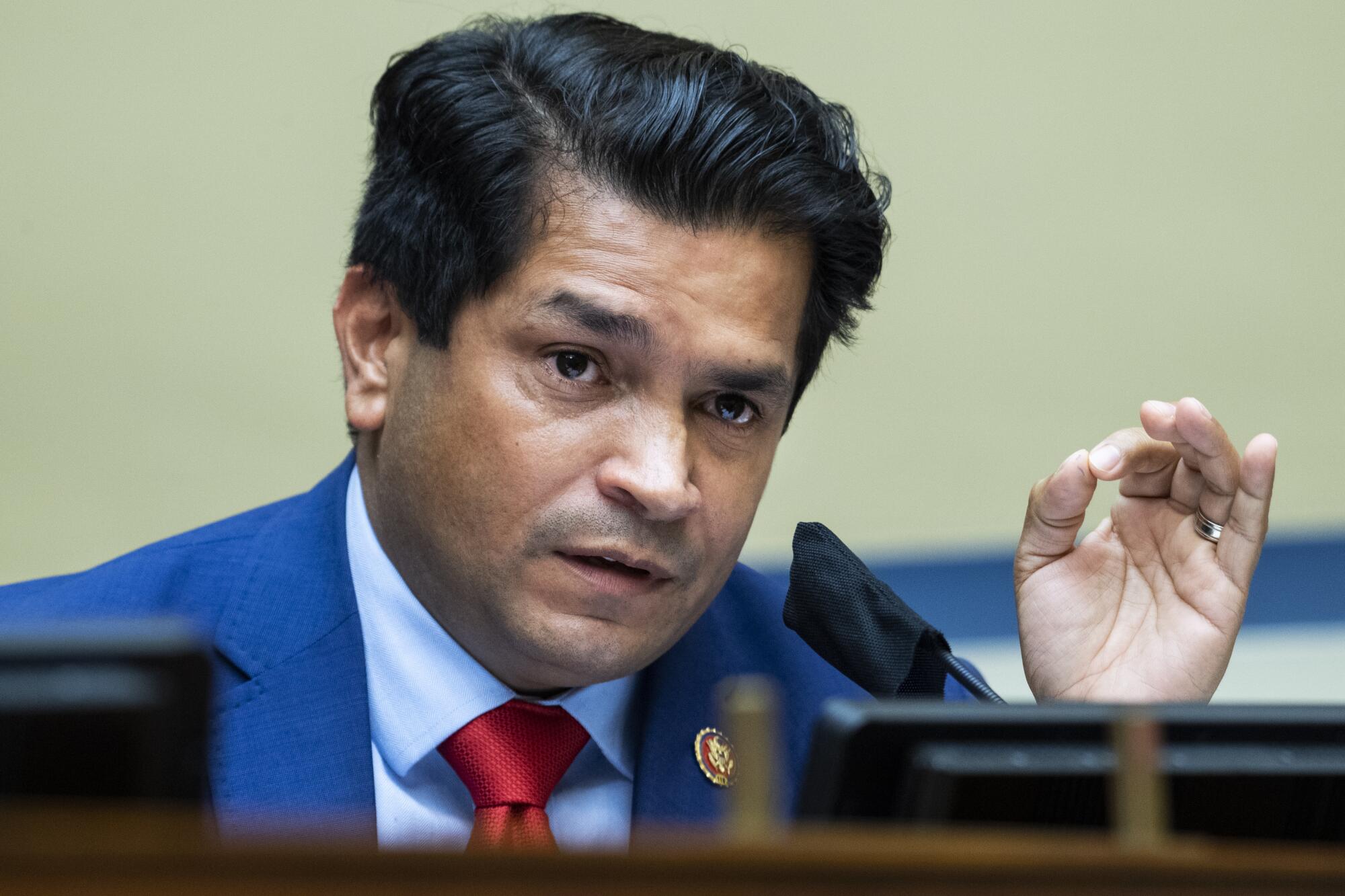
Rep. Jimmy Gomez (D-Los Angeles) was in the gallery of the House chamber when the rioters breached the Capitol.
He and his colleagues were running across the gallery in hopes of escaping when he saw Capitol Police barricading the door the president uses to enter the chamber for the State of the Union. The rioters were too close for the lawmakers to get out safely.
“All I could think of is: Get out. Run. As fast as you can. You don’t want to be trapped in here. Run, run, run,” Gomez recalled. “And all of a sudden, they closed the doors on us and they told us to get on the ground. There’s people trying to break in outside the doors.”
Once police cleared the hallways and escorted the lawmakers to safety, several members of Congress got together and committed to remaining in the building and finishing the certification of the electoral college vote.
“That’s when [Reps.] Hakeem [Jeffries] and Liz Cheney said we’re going to go back and finish the job,” Gomez said. “They brought buses to get the members out, and [Rep.] Ruben [Gallego] and other Democrats were like, ‘Do not get on the buses.’ They said that’s how a coup happens: when the electeds are evacuated out of the Capitol or out of the palace. … So everybody that I was talking to was committed to staying.
“It was a terrible, terrible day. I don’t know if I said this to [Times reporter] Sarah [Wire] or a different reporter, but I did say like, ‘This is how a coup happens and this is how democracy dies and Donald Trump should probably be brought up on treason.’ And I still believe that to this day. I’m glad we impeached him. But now we know that there’s more people involved.
“I remember actually flying back from D.C. and, you know, I was on the plane with a bunch of MAGA people that were with their gear, like they’re coming back from a Republican convention or something.”
Gomez’s experience getting caught in the gallery left him shaken, but he says his resolve to stand up for democracy has only grown since that day.
“I’m a son of immigrants that believes in this whole idea of America, the idea of self-governance, the idea that you come here, you work hard, you believe in our values, you’re going to succeed, because I’m an example of that promise ... in one generation. That doesn’t happen in a lot of countries. It doesn’t happen in Mexico, where my family’s from. So my resolve has been just more firm than ever.
“But it’s been tough, to be honest. I got triggered ... a few months ago, and I didn’t really see it coming on, but I got hot and my vision got tunneled. So I had to kind of walk away. ... But my resolve, it’s stronger than ever.”
~~~
‘I really thought that I was going to die that day, that I was going to be killed — that I would be literally killed — that I would possibly have to fight for my life, that so many of my colleagues would probably be victims.’
— Rep. Norma Torres (D-Pomona)
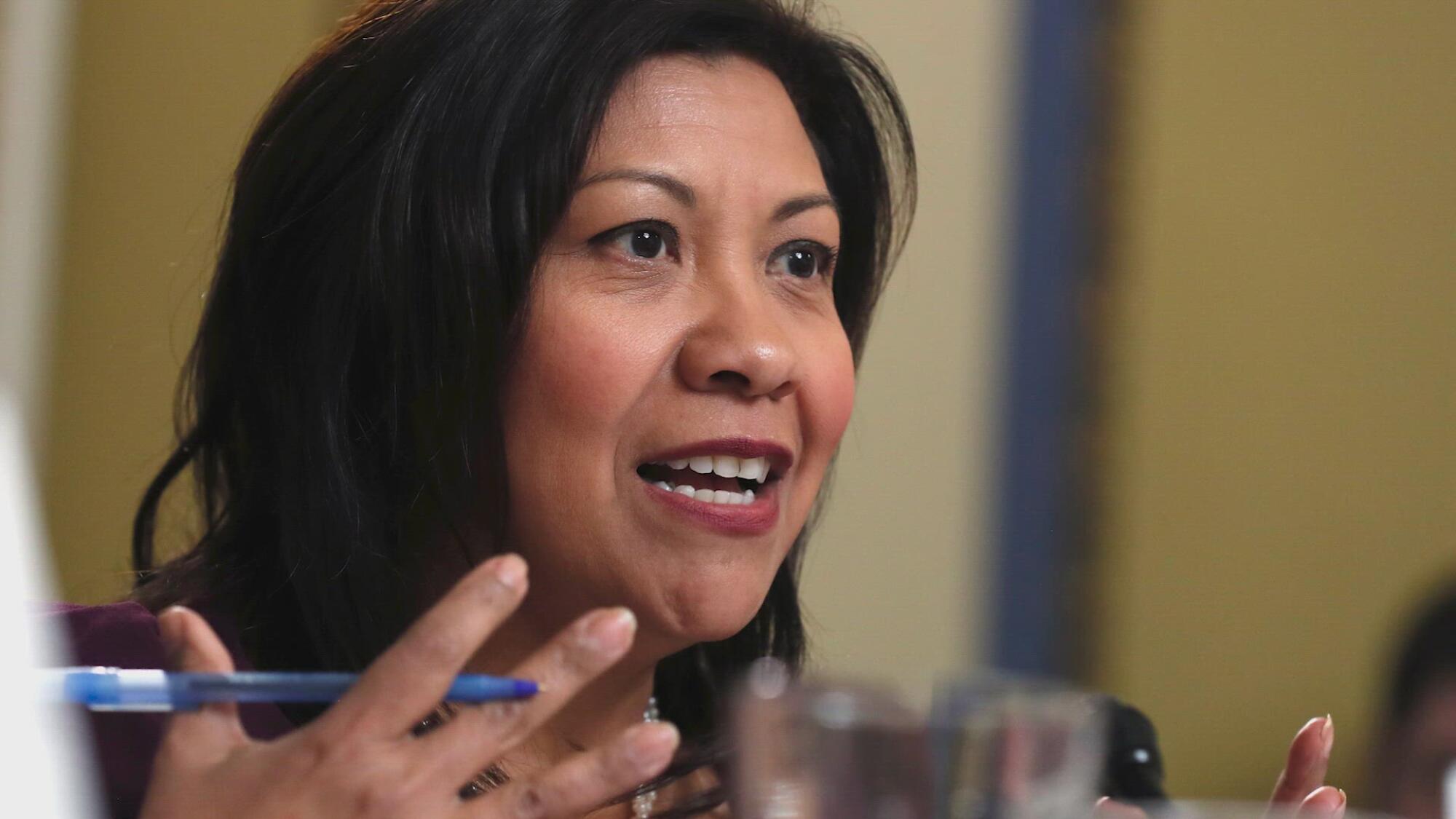
Rep. Norma Torres, a Democrat from Pomona, was inside the House chamber when the attack began.
“It was a very violent day for me. I had never been in a situation where I felt so unsafe, and I really thought that I was going to die that day, that I was going to be killed — that I would be literally killed — that I would possibly have to fight for my life, that so many of my colleagues would probably be victims.”
A year ago, as Trump supporters rioted in the halls, Torres told Times staff writer Sarah D. Wire, who was reporting inside the Capitol on Jan. 6: “It’s horrible that this is America. This is the United States of America and this is what we have to go through, because Trump has called homegrown terrorists to come to the Capitol and invalidate people’s votes.”
Torres said she has changed since that day, noting that she no longer feels safe inside the Capitol complex and sees her GOP colleagues in a different light.
“There used to be a time in the past, before the Jan. 6 insurrection, where I could look and see somebody wearing their congressional pin and think, ‘That’s my ally.’ Even if they were Republicans, it was like, ‘OK, that’s my ally, and we’ll take care of each other no matter what happens.’ I don’t feel that way anymore about my colleagues. Not at all.”
~~~
‘Attacking a federal building, whether it is the U.S. Capitol or a court or anything else, does not tear down democracy.’
— Rep. Doug LaMalfa (R-Richvale)
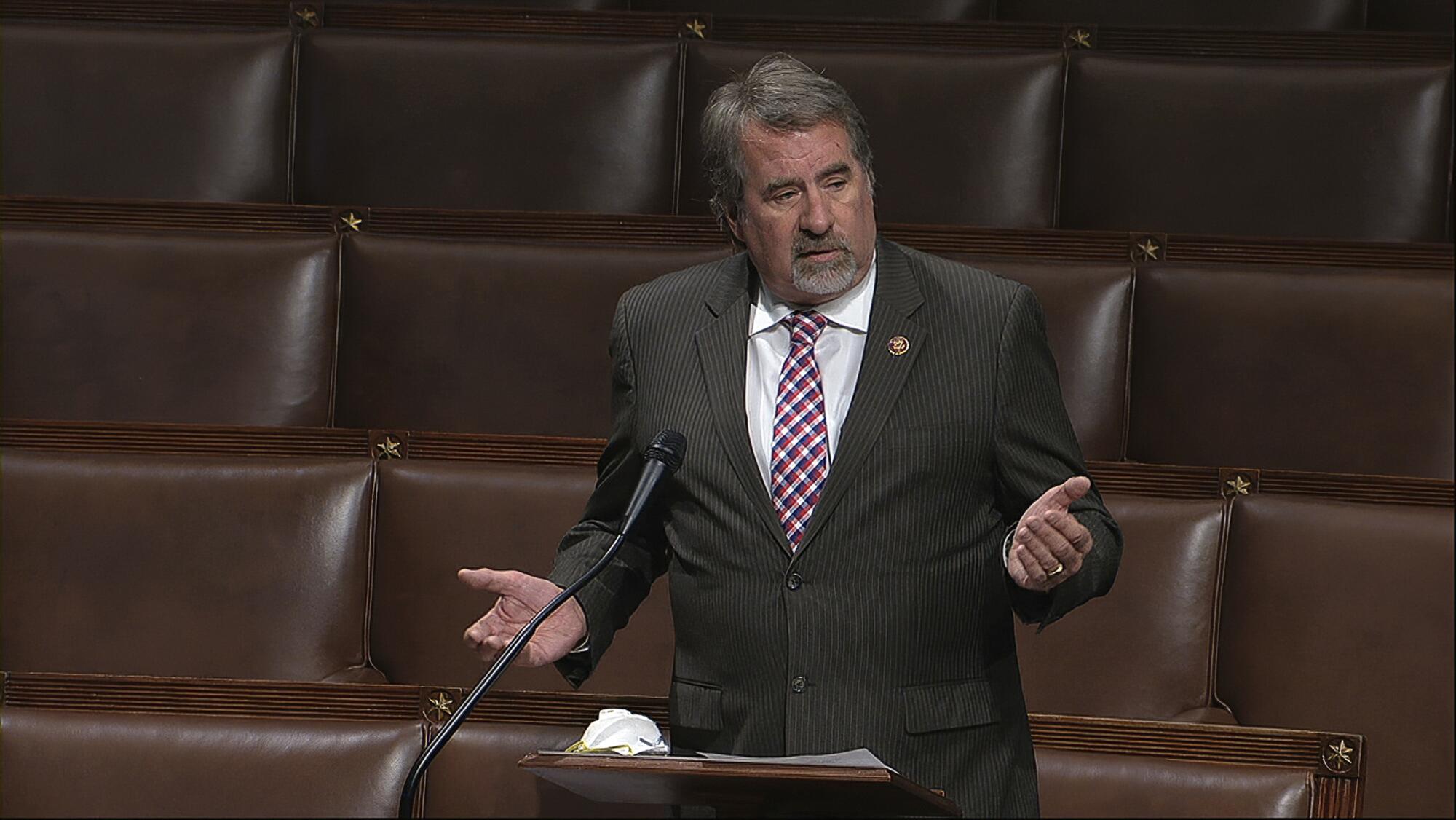
Rep. Doug LaMalfa, a California Republican from Richvale who was on the House floor when insurrectionists stormed the Capitol, called the riot a “deplorable situation.”
“Nobody should be breaking into this building for any purpose, let alone trying to stop a process that we were going through, and we were going through it in good faith, no matter what side you were taking on the issue of the day.”
He said he wasn’t concerned about the long-term prospects of democracy, because the republic is built on people, not buildings.
“Attacking a federal building, whether it is the U.S. Capitol or a court or anything else, does not tear down democracy. We’re not a democracy, by the way — we are a republic. Democracy is on election day.
“So our republic is not torn down by what building the meetings are held in, but by the heart and souls of the people that are elected to carry out the business of the government wherever that’s done.”
~~~
‘I always thought that personally I was very safe in this job, particularly when I’m in the Capitol complex, because it takes so much to get in there. Certainly I don’t think about it every day, but I don’t quite feel that same level of safety.’
— Rep. Scott Peters (D-San Diego)
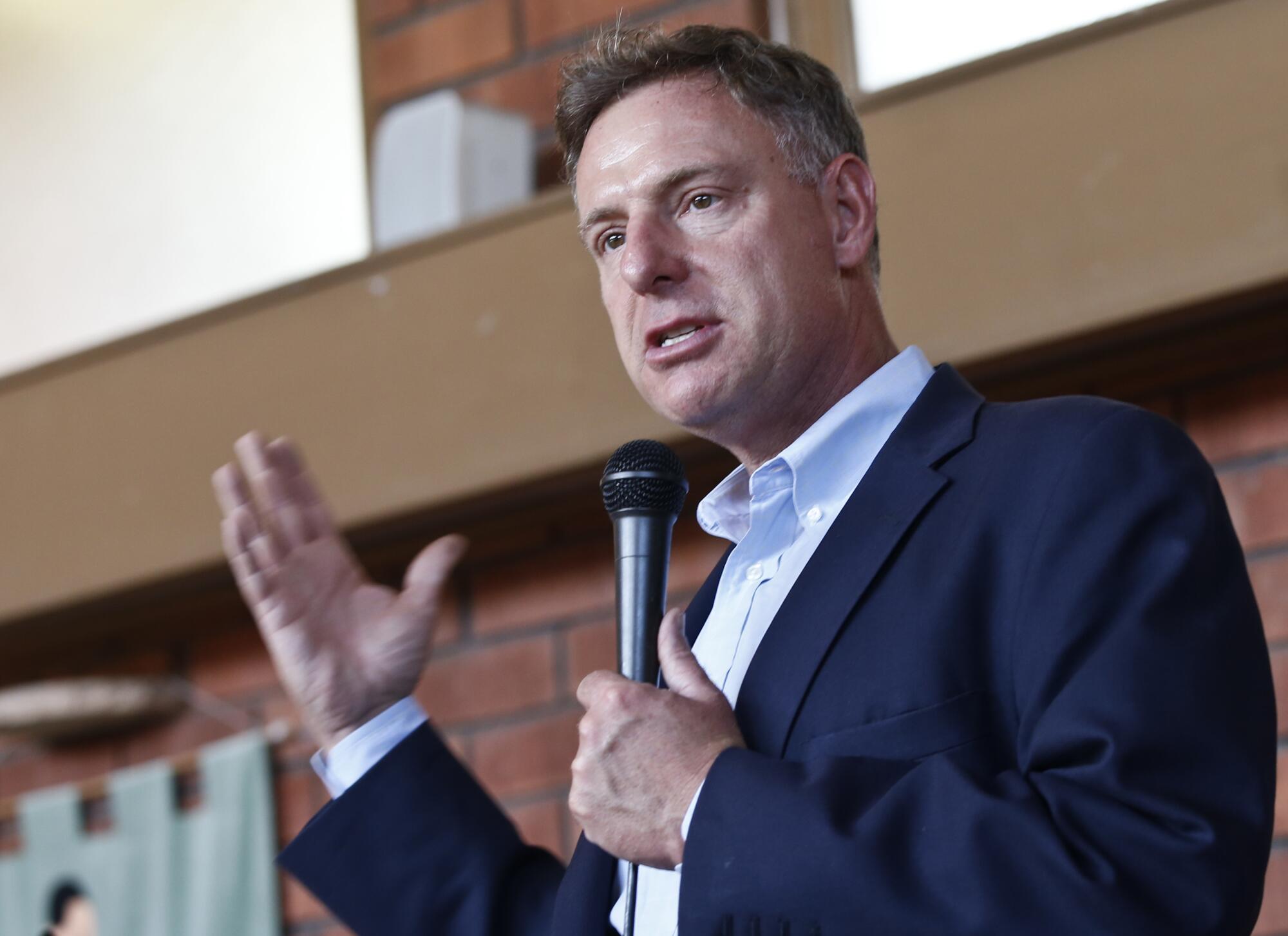
Rep. Scott Peters, a Democrat from San Diego, was in the House gallery when he saw something he’d never seen before: a nonmember of Congress at the rostrum.
“It was someone from the security force. He said: ‘Please stay in your seats. There’s been a breach in the Capitol.’”
“I didn’t know what to think at that point. I assumed that a few rogues had run by the metal detector. But I didn’t know how serious it was. Gradually I was kind of hurt that this was happening, thinking, ‘How could people get by security in one of the top terrorist targets in the country? We should be ready for this.’
“At one point, members were about to be evacuated when they were told to ‘get to the floor.’
“So everyone kind of got down low. And that was a little bit of a sobering moment. Then at one point, we heard an explosion. It sounded like a gunshot or a tear gas deployment. We didn’t know. I think it might’ve been the shot that killed my constituent. Ashli Babbitt was from San Diego.”
Peters, who was first elected in 2012, added that he doesn’t feel as safe as he did in his first term as a member of Congress.
“I always thought that personally I was very safe in this job, particularly when I’m in the Capitol complex, because it takes so much to get in there,” he said. “Certainly I don’t think about it every day, but I don’t quite feel that same level of safety.”
~~~
‘No matter what your politics, it wasn’t a good day.’
— Rep. Ken Calvert (R-Corona)
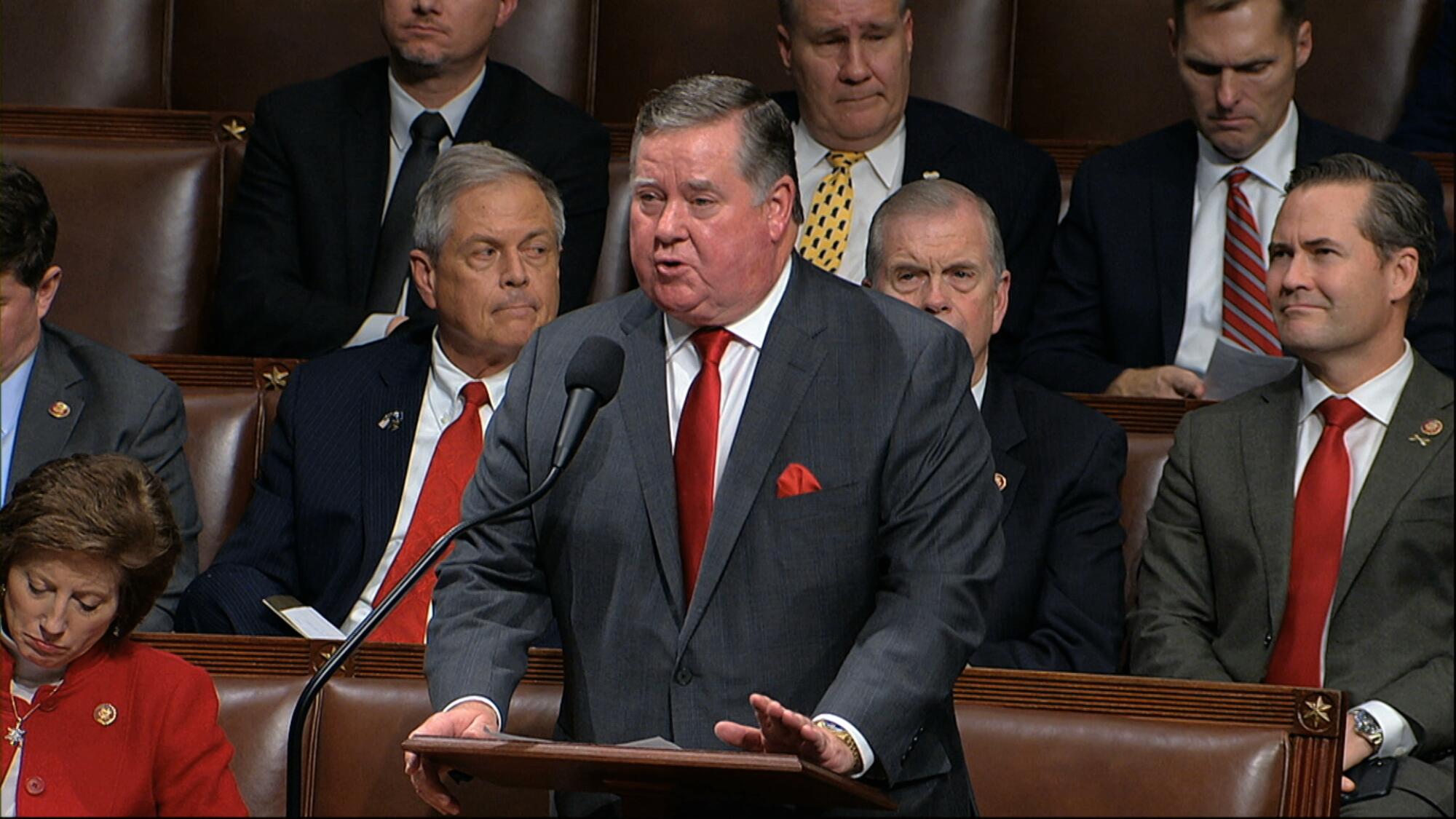
Rep. Ken Calvert, a Republican from Corona, was in his office in a nearby building, not in the Capitol itself, but was still disturbed by what he saw and called it “very regretful.”
“I mean, it was troubling. But I wasn’t here in the building. And I have a lot of friends that were. Certainly, no matter what your politics, it wasn’t a good day. It’s a bad situation.”
He said he has hope that any changes to the institution of Congress and to relationships won’t be long-lasting.
“We have to get back to some kind of normalcy again. ... I’m an optimist, I’m hoping we get back to some comity around here.
“These people are my friends. I may be in a different party and I don’t agree with them, but it doesn’t mean we can’t like each other. ... We’re a divided nation, there’s no doubt about it, but people expect us to get together, get things done.”
~~~
‘Divisions here in this country are our biggest challenge. That’s what keeps me up at night. ... It’s really trying to crack this nut of, how do we break this fever of division in our country?’
— Rep. Mark Takano, a Democrat from Riverside
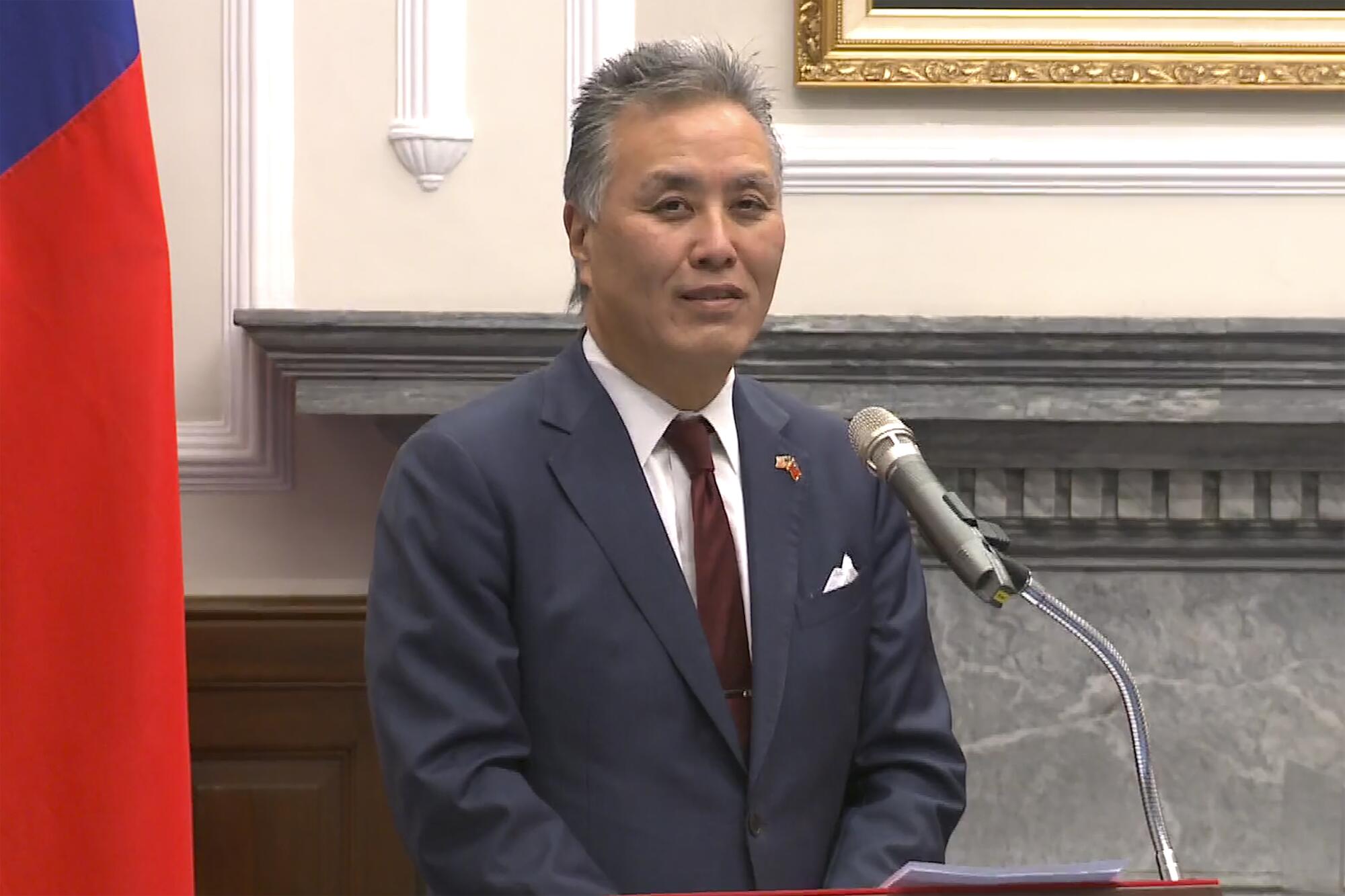
Rep. Mark Takano, a Democrat from Riverside, had to make his way from one House office building to the next during the riot.
“It looked like kind of a refugee zone with all these staffers sitting on the other side of the hallway, stepping over people.
“I got a couple of texts asking if I was OK,” Takano said. “But up until now, I don’t really have a reality of what is happening because I’m not looking at the news, but I’m getting a couple of texts from people saying, ‘Are you OK?’ And I thought this was kind of strange.
“I felt a little insecure, but I was in an office complex that was sort of nondescript. We were sheltering for an extended period of time. But I don’t have any kind of lingering trauma, personal trauma. I do have concerns going forward about the political culture of the country and the political norms of the country.”
Takano said he believes “the biggest challenge to America is ourselves.”
“That’s our biggest challenge. Divisions here in this country are our biggest challenge. That’s what keeps me up at night. ... It’s really trying to crack this nut of, how do we break this fever of division in our country?
“I don’t see this being solved in one year or one election. It’s going to take a lot of courage. Persistence.”
More to Read
Get the L.A. Times Politics newsletter
Deeply reported insights into legislation, politics and policy from Sacramento, Washington and beyond. In your inbox three times per week.
You may occasionally receive promotional content from the Los Angeles Times.

